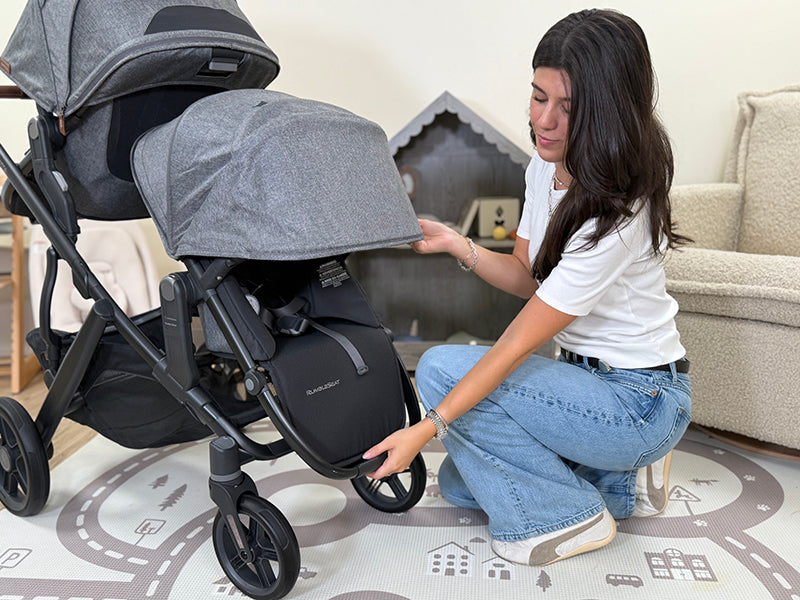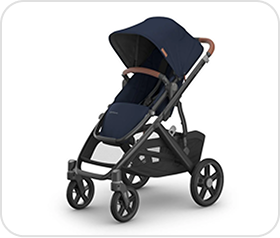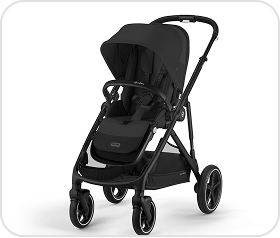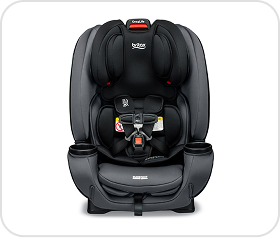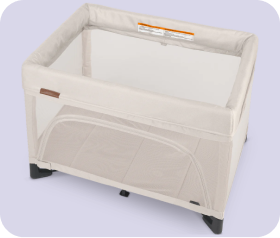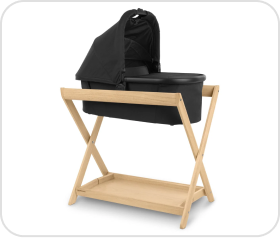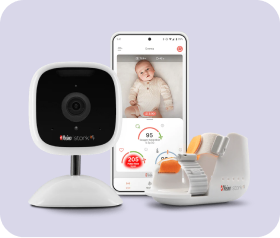
Car Seat Expiration Dates: Why They Matter and How to Check
Investing in baby gear can be a significant financial commitment! Families often accumulate various pieces of baby gear to assist them in their parenting journey, and many of these products come with a hefty price tag. Consequently, it's not surprising that families choose to pass down baby gear from older to younger children. Hand-me-downs can remain within a family household or be shared with extended family members or friends who are expecting their first baby and in need of essential items.
While the intention behind recycling baby gear is commendable and budget-friendly, passing down a car seat requires careful consideration. It is crucial to be aware that all car seats have expiration dates. Despite the temptation to disregard these expiration dates and attribute them to manufacturers merely wanting to sell more products, there are valid reasons behind car seat expirations—issued with child safety in mind. Read on to learn about why car seats expire, how long they typically last and where you can find your car seats expiration date.
Why do car seats expire?
In the United States, there is no government mandate regarding car seat expiration dates. Instead, manufacturers autonomously establish the duration for which their specific car seat models are approved for use. This duration varies based on both brand and model. Now, let's explore the reasons behind expiration dates: material break down, regulation changes, and technological advancement.
Do car seat materials break down over time?
Similar to any other product used on a daily basis, prolonged use can result in the deterioration of materials over time. This breakdown may eventually become visible in the fabrics and harnesses of car seats. Continuous buckling and unbuckling, along with the repeated rethreading of harnesses and pulling through mechanisms for correct tension, can cause harnesses to fray over time. It is reasonable to expect that, with time, harnesses and straps will wear down, potentially affecting their performance in the event of a crash. While the breakdown of harnesses and fabrics may be apparent to the naked eye, there are other components of the seat that can also deteriorate, and these may not be as obvious or visible at all.
Car seat shells are constructed from plastic and usually lined with energy-absorbing foam. Exposure to extreme heat and cold can lead to cracking or breakdowns in these materials. It is crucial for these materials to maintain their integrity to ensure they provide the intended protection.
Manufacturers take into account the design and materials of each individual car seat model when establishing its lifespan. While parents can feel confident using their car seats within the specified timeframe, it is equally important to adhere to expiration dates. Beyond this period, car seats may no longer perform at their full capacity.
Do car seat safety standards change every year?
Although government regulations set by the National Highway Traffic Safety Administration do not undergo annual updates, these safety standards are subject to change based on ongoing research, data on passenger safety, and advancements in safety technology.
Let's acknowledge the reality: if you're expecting your first child and your parents still have your old car seat tucked away in their attic, it's probably visibly outdated, and you wouldn't feel confident using it for your new baby. Consider the significant advancements in car seat technology over the last few generations and the evolution of safety standards. Grandparents often express amazement at the modern models compared to what was available when they were new parents!
With all that said, even if you've diligently cared for your car seat over the years and kept it in pristine condition, evolving regulations could render it non-compliant with current safety standards and obsolete due to technological advancements.
Where can I find my car seats expiration date?
Expiration dates are established either from the date of manufacturing or the date of purchase, and this can vary among brands. It is crucial for parents to consult their car seat user manuals and refer to manufacturer websites if there is any uncertainty about the expiration date. In most cases, each individual car seat features a sticker on its body (shell) containing a unique serial number, manufacturer date, and model number.
Do I need to register my car seat?
Registering your car seat is a very important step in the car seat purchasing process. Upon unpacking your new car seat, it is essential to promptly register your product with the manufacturer. Typically, this can be done directly on the manufacturer's website; you can find a link to their registration page at the bottom of their home page. Alternatively, your new car seat might come with a warranty card that the purchaser fills out and then mails to the manufacturer. Skipping this registration step should be avoided for two key reasons:
- Registering your car seat provides the manufacturer with information about the specific model you possess and your contact details. In the event of a recall, the manufacturer can directly contact you to alert you about the recall and promptly dispatch either a replacement seat or the required replacement parts.
- Your new car seat includes a manufacturer warranty. If your car seat exhibits defects covered by the manufacturer warranty, having it registered in advance streamlines the warranty claim process.
Registering your car seat is crucial for facilitating prompt resolutions when addressing recalls, defects and part replacements.
How long can a car seat be used?
As mentioned earlier, car seat lifespans are determined by manufacturers and vary depending on the brand and model. The lifespan is typically relevant to the period during which the car seat is in use. For example, infant car seats are generally used from birth to about the baby's first birthday, making them have the shortest lifespan. Most infant car seats have a lifespan ranging from 5 to 7 years, providing ample time for parents to pass them down from the first baby to the next.
On the other hand, convertible car seats and all-in-one seats (birth to booster) can accommodate children from birth to ages ranging from 5 to 10 years old. Consequently, these seats typically offer a longer lifespan, extending up to 10 years in some cases.
Should I consider purchasing a used car seat?
Parents might feel overwhelmed by the price tag on new car seats and reluctantly consider buying used ones, whether from platforms like Facebook Marketplace or local thrift stores. However, this is not advisable. Car seats are a crucial piece of gear that parents should always buy new. When you purchase a used car seat, you have no insight into its history. Any car seat that has been in a crash, regardless of visible damage, needs to be replaced. Buying used means you cannot ascertain whether the car seat has been in a crash or not. Opting for a new car seat provides peace of mind and guarantees a lack of crash history. Another benefit of buying new is the inclusion of a manufacturer's warranty.
How can I discard my expired car seat?
Due to the reasons mentioned earlier regarding the risks associated with expired car seats, it is not recommended to donate, sell third-hand, or pass down an expired car seat. It is advisable to dispose of your expired car seat in a way that ensures no one else will attempt to use it. Many manufacturers recommend cutting the straps and harness, writing "expired" over the manufacturer sticker, or completely destroying the car seat before discarding it. Car seat recycling programs are available throughout the US, and a quick search may provide information on places offering coupons or other rewards for turning in expired car seats.
If you have reached the end of this article, you should now have a thorough understanding of the importance of car seat expiration dates, the significance of adhering to them, the value of registering your car seat, and the proper methods for discarding it.
Questions?
Strolleria is dedicated to making the gear buying experience less overwhelming for parents.
If you have more questions about car seat expiration dates, feel free to start a live chat or email us at customercare@strolleria.com.


























